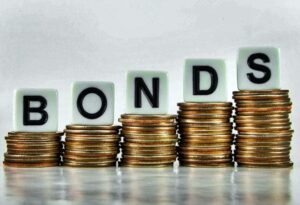Would a rose by some other name smell as sweet? It is an inquiry many security financial backers ought to present themselves and the managers of their money.
A stunner paper that has been bit by bit wending its direction through the friend checked on scholarly distributing measure has now at last showed up in the most recent release of the respected Journal of Finance, and merits a wide airing.
Filtering through the individual reported investments of individual bond funds, Huaizhi Chen, Lauren Cohen and Umit Gurun found that very nearly 33% of as far as anyone knows safe US bond funds are really more dangerous than their order would suggest. The fitting title of the paper is: “Don’t Take Their Word For It”.
Damningly, the three analysts say it seems, by all accounts, to be an deliberate ploy to game the rating arrangement of Morningstar, the shared asset industry’s dominant research house. “This misreporting has been not only persistent and widespread, but also appears to be strategic,” the paper argues.
Allow us to separate this. Most bond funds focus around a particular corner of the fixed pay markets, say, corporate or government securities, profoundly evaluated “investment grade” debt or securities rated beneath that, and regularly a specific development of obligation. Morningstar then, at that point relegates them stars as per how well they do contrasted and different assets in their class.
Yet, truly, many security subsidizes delegated moderately safe have really stacked up on more hazardous obligation to juice their profits comparative with their friends and the benchmark, the paper contends. That implies they get a shinier star rating from Morningstar, which thus prompts prospering inflows from financial backers that essentially follow its powerful appraising framework. At the point when grouped properly, many asset administrators go from looking like certifiable Masters of the Universe to more like “unremarkable entertainers”, the paper notes.
The report centers around the disparity between a security asset’s real property and its Morningstar order, and basically chastises the previous for apparently intentionally distorting and the last for trusting them.
Morningstar contends that the paper wrongly accepts that all non-evaluated obligation should be of inferior quality, and possibly befuddles its investment style and classification systems with the last used to appoint appraisals. At the point when the exploration house attempted to reproduce the investigation they tracked down no significant connection between apparently “misclassified” assets and Morningstar ratings.
Notwithstanding, whatever the general benefits of the arguments over this specific paper, this is likely a far more extensive, more poisonous issue than many figure it out.
As AQR Capital Management displayed in a 2018 paper named The Illusion of Active Fixed Income Alpha, the wonder of security reserves complimenting their outcomes by stacking up on more hazardous obligation is a far reaching one. Indeed, this straightforward, orderly slant towards lower-rated corporate debt clarifies why security assets on normal improve occupation of beating their records than equity funds, AQR contended.
The quantitative venture bunch additionally searched for indications of sensibly predictable speculation ability inside various security store classifications. “The proof is genuinely grim: we see little proof of relentless chief expertise,” the paper closed.
This is one reason why detached putting is blooming in security markets. Right in the course of recent years, uninvolved security reserves have taken in nearly $850bn, significantly more than the far bigger universe of dynamic security assets, as per EPFR. For some customary financial backers, this is a crime. They contend uninvolved security reserves are, best case scenario, stupid, given the fixed pay market’s rewarding failures, and security ETFs are out and out risky. However, financial backers are unmistakably casting a ballot with their cash.
The facts confirm that one could contend that overweighting corporate bonds, and particularly lower-evaluated ones, is a characteristic and in fact sharp choice by dynamic directors that are paid to convey more prominent returns — particularly when high-grade government bond markets yield near or even under nothing.
However, actually this changes the idea of a security reserve. More hazardous, unstable garbage securities imply that they move more couple with the value market. That is fine in case it is straightforwardly sold as a racier vehicle, however can be a frightful amazement for some financial backers that purchase security assets as a stabilizer in their portfolios.
“When the tide went out during the initial Covid shock, many managers weren’t fully dressed,” says Mike Gitlin, head of fixed pay at Capital Group. One of the jobs played by fixed pay supervisors, he notices, ought to be to guarantee that you don’t “drive clients off the cliff when they need you most.”‘
Disclaimer: The views, suggestions, and opinions expressed here are the sole responsibility of the experts. No journalist was involved in the writing and production of this article.




